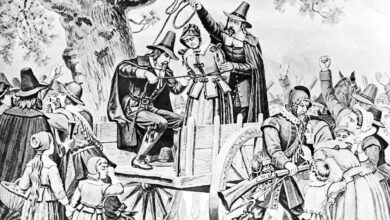Words That Shook a Nation: The Enduring Impact of ‘Uncle Tom’s Cabin
On March 20, 1852, Harriet Beecher Stowe’s novel “Uncle Tom’s Cabin, or Life Among the Lowly” was published in the United States. This groundbreaking work was pivotal in shaping public opinion about slavery and is credited with laying the groundwork for the American Civil War. By bringing the realities of slavery into the homes of American readers, Stowe’s novel galvanised the abolitionist movement in the North. It provoked widespread anger in the South, highlighting the deep divisions within the country.
“Uncle Tom’s Cabin” tells the story of Tom, an enslaved African American man, and several other enslaved characters, showcasing their humanity and their brutal conditions. Stowe’s powerful narrative exposed readers to the moral and ethical questions surrounding slavery, making a compelling case for its abolition. The novel’s vivid depiction of the slave experience, based on Stowe’s research and real-life accounts, made it impossible for readers to ignore the cruelty and inhumanity of slavery.
The impact of “Uncle Tom’s Cabin” was immediate and profound. Within a year of its publication, the novel sold over 300,000 copies in the United States alone, making it one of the best-selling novels of the 19th century. It was also widely read in Great Britain and translated into multiple languages, spreading its anti-slavery message worldwide.
The book’s popularity provided significant momentum to the abolitionist cause, helping to shift public opinion in the North against slavery. Abraham Lincoln is famously quoted as saying to Stowe upon meeting her during the Civil War, “So you’re the little woman who wrote the book that started this great war.” While this attribution is apocryphal, it underscores the widespread belief in the profound influence of Stowe’s work on American history.
“Uncle Tom’s Cabin” also faced significant backlash, particularly in the Southern states, where it was denounced as propaganda. Supporters of slavery vilified Stowe, and the novel sparked fierce debates over slavery and its place in American society.
Today, “Uncle Tom’s Cabin” is recognised as a crucial piece of American literature and history. While some modern critics have debated its portrayal of African American characters and its impact on racial stereotypes, the novel’s historical significance and its role in the fight against slavery are undeniable.
Reflecting on its publication anniversary, “Uncle Tom’s Cabin” reminds us of literature’s power to influence society and catalyse social change. Stowe’s work remains a testament to the enduring struggle for justice and equality.





